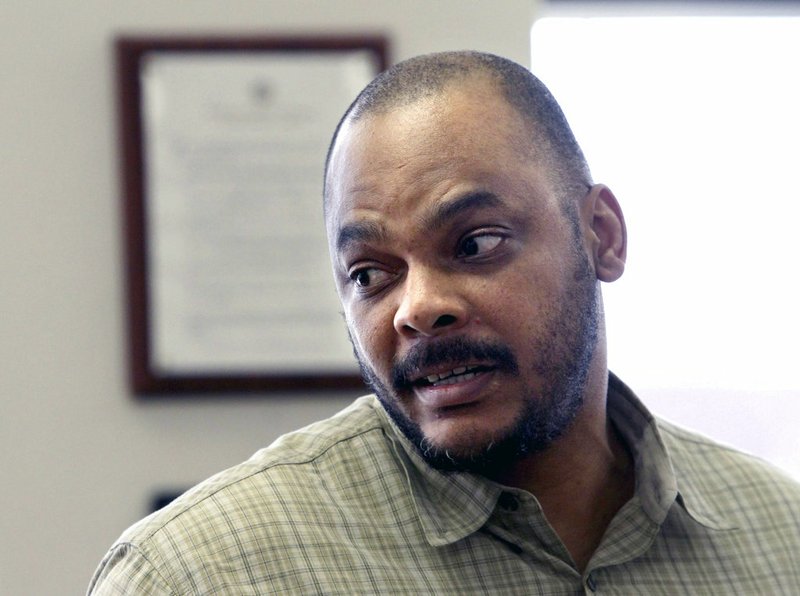SEATTLE -- The getaway driver for a gunman from Arkansas who killed four Washington state police officers in 2009 won't face aggravated-murder charges at his second trial, the Washington Supreme Court ruled Thursday, but he still may spend the rest of his life in prison if convicted upon retrial.
Jurors found Darcus Allen, previously of Little Rock, guilty of first-degree murder at his first trial, but they didn't find him guilty of aggravating factors that would lead to an automatic sentence of life in prison without parole. That conviction was overturned, and prosecutors wanted to try him again for aggravated murder.
Washington's high court unanimously agreed with lower courts that prosecuting Allen again on the aggravating factors would violate his constitutional right not to be tried twice for the same crime.
Allen, who also went by the alias Dorcus Allen, will still face another trial on first-degree murder charges.
"He can still be retried, he just can't receive a life-without-parole sentence," his appeals lawyer, Gregory Link, said Thursday.
If convicted, Allen would face a mandatory minimum sentence totaling 100 years, though defense attorneys could try to have his terms on some of the counts run at the same time, rather than consecutively, Pierce County prosecutor Mark Lindquist said.
"I'm not saying they'd succeed, but the defense will make any feasible legal argument for a sentence of less than 100 years," he said. That would not be possible if Allen were convicted of aggravated murder.
Lindquist said his office will consider asking the U.S. Supreme Court to review the ruling, saying the state justices had gone further than their federal counterparts in interpreting how double-jeopardy protections apply to aggravating factors in crimes.
Allen was a friend of Maurice Clemmons, originally of Marianna, who attacked Lakewood, Wash., police Sgt. Mark Renninger and officers Greg Richards, Tina Griswald and Ronald Owens as they sat in a coffee shop preparing for their Sunday morning shift on Nov. 29, 2009.
After killing three of them, Clemmons was shot as he wrestled with Richards, but managed to kill the officer and take his gun.
Clemmons fled in a pickup that Allen drove. After receiving help and bandages from relatives and friends, Clemmons evaded a manhunt that ended two nights later when a lone Seattle patrolman encountered Clemmons on a street and shot him dead.
At the time of the killings, Clemmons had posted bond after an arrest for punching officers. During a Thanksgiving dinner that Allen attended, Clemmons said he intended to kill any officers who came looking for him.
Three days later, Clemmons asked Allen to drive him near the coffee shop. Allen also drove him away from it. Allen insisted he did not know Clemmons' plans ahead of time and that he did not realize anything had happened until they drove a few blocks and he saw that Clemmons was wounded.
A jury convicted Allen of murder as an accomplice in 2011. The jury cleared him of the aggravating factors: that he knew the victims would be police officers and that there were multiple victims or that the killings were planned.
The Washington Supreme Court overturned the conviction, saying a prosecutor had committed misconduct by misstating the definition of an "accomplice" during closing arguments.
Given that the jury had acquitted Allen of aggravating factors, it would be unfair to allow prosecutors another chance after their misconduct at the first trial, his defense attorney said.
In 1991, Allen pleaded guilty to two counts of first-degree murder in connection with an Arkansas liquor store robbery and shooting.
Allen was sentenced to 25 years in prison, but the Arkansas Parole Board released him on Dec. 20, 2005, after about 15 years, said Solomon Graves, a spokesman for the Arkansas Department of Correction.
Pulaski County court records show that Allen reached the negotiated plea four days before he was to stand trial on charges of capital murder.
Allen told investigators he had been drinking all day when he went with four people to Art's Liquor Store at 6906 Arch Street Pike on April 26, 1990.
Two men walked into the store while Allen waited outside in a stolen car with two others, according to a 2009 article in the Arkansas Democrat-Gazette. During the robbery, a gunman killed the store's owner, Thomas Findley, 61, and a clerk, Charlotte Fowler, 41.
Allen told Circuit Judge John Langston that he was aware that a robbery was planned and that he shared in the proceeds of the crime, according to a 1991 article in the Arkansas Gazette.
Information for this article was contributed by Gene Johnson of The Associated Press and by Bill Bowden of the Arkansas Democrat-Gazette.
Metro on 12/15/2018
